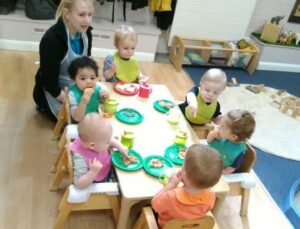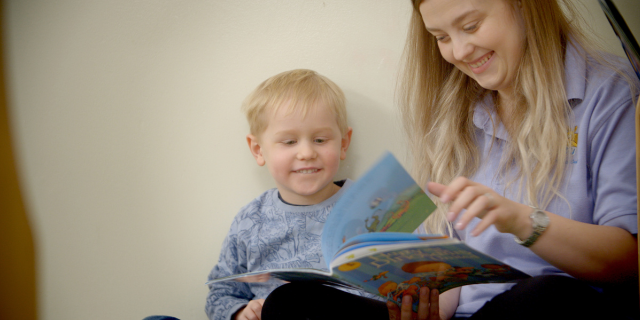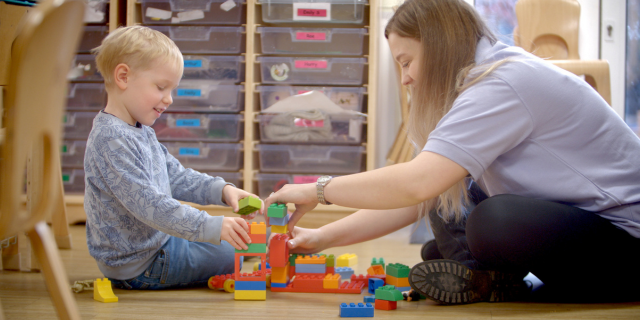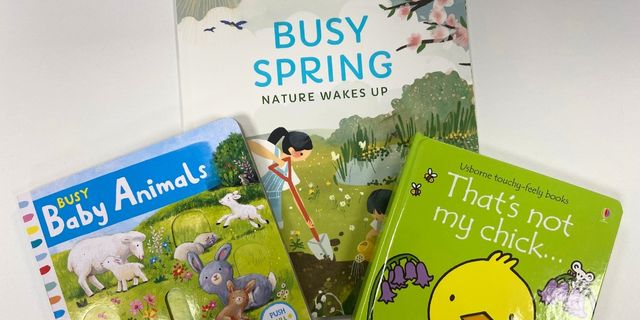Blog
Top Baby Weaning Tips
Blog

Food is a big part of our lives, and the idea of sharing your favourites with your baby is exciting. However, there are some things to consider when changing your baby’s diet from milk to solids.
The most important thing to keep in mind is that your child, at every age, is a unique individual who will move at their own pace!
Some parents will be inclined to introduce solids into their diet from as young as four months old, but the recommended age is approaching six months old. Your baby should be able to hold their head and neck steady, so they can swallow safely and beginning to have some hand-eye coordination so that they can see the food, pick it up and attempt to get it into their mouths.
 This timing is to also give your child’s digestive system and immune system longer to mature and strengthen, so they can fight off any infections and be less likely to have a bad reaction to the foods they are trying. As with most experiences in the first year of your child’s life – it’s new!
This timing is to also give your child’s digestive system and immune system longer to mature and strengthen, so they can fight off any infections and be less likely to have a bad reaction to the foods they are trying. As with most experiences in the first year of your child’s life – it’s new!
It is normal for children to only have a few mouthfuls of food when weaning alongside their milk. They will be learning how to move solid food around their mouth, chew and then swallow which may take time to master. This is all fine as they should still be getting all their nutritious requirements from their usual formula/breast milk. Which provides your baby with the perfect opportunity to try new tastes and textures.
Prepare yourself for quite a bit of mess and waste!
So, how do you know if your baby is ready to start weaning? The common indicators include your baby still being hungry even after a milk feed, their weight gain begins to slow down, they lose the automatic action of sticking out their tongue and begin to make chewing motions, and a very noticeable one is when they become interested in your food. Their hands will start to venture across to your plate to see what is so yummy!
Now, as tempting as it is to just hand over your food, there are some foods that should be avoided in the early stages of weaning:
- Gluten
- Dairy products including soft cheese
- Citrus Fruits
- Fish and shellfish
- Eggs
- Liver
- Soya
- Nuts
- Foods high in salt or saturated fats including fast foods
- Sweets and soft drinks
- Honey
Weaning is an exciting learning curve for both you and your baby and usually means introducing mashed or pureed food such as cooked vegetables or fruit (a favourite is often pear and mango). You can also try gluten free baby cereal mixed with your child’s usual milk to make it soft and a familiar taste. You can choose to serve them using baby spoons or a clean finger if you prefer or your baby may choose to serve themselves. Once your baby is happy eating these types of meals you can introduce more variety and textures. It can seem easier to give them meals you know they enjoy but it is important to give them a wide range of flavours and consistencies to stop your child from becoming a ‘fussy eater’. It may take 10 times or more for your baby to get used to new foods, flavours and textures.
What is Baby Lead Weaning (BLW)?
Basically, BLW skips the puree stage. Instead you provide your baby with appropriate foods, such as finger foods and vegetables to allow them to feed themselves. This helps to open them up to different textures and tastes at an early age, there is a lot less prep work for you and they can be more involved with family meal times as you will not have to feed them. On the other hand, there is a lot more mess as your baby can play more with their food and often they like to check to make sure gravity is still working correctly. Due to this, it is difficult to know how much your child has eaten. Often with second children they will be more inclined to follow BLW as they want to follow their older siblings example.
As we explained at the start, all children are unique and will have difference styles and speeds. To open them up to all their options, it may be a good idea to bridge the gap between the two styles of weaning by giving your child a combination of both puree and finger foods.
What do we do at Kiddi Caru Day Nurseries?

We take great care to provide children with nutritious and wholesome food, prepared by fully qualified professionals. We plan our daily menus to include fresh and varied options that are suitable for each age group that we care for (from new born babies to five-year olds). Naturally, we also cater for all individual dietary needs. Our menus are produced under the guidance of a registered Dietician who has many years’ experience of working in the childcare industry and with day nurseries.
Meal-time in the Baby Unit is a perfect relationship-building opportunity for child and carer. Our nurseries encourage children to eat together, learning from one another and watching what the next steps are.
Our specialist staff always ensure that the type, consistency and portion size is just right for your baby. For our two to five-year olds, we see meal times as an important opportunity for social interaction and a tool for building confidence and independence. For example, the children learn to self-serve and use real cutlery at an early age.
Share this article
Related blog/news
Swipe to see our latest articles.








